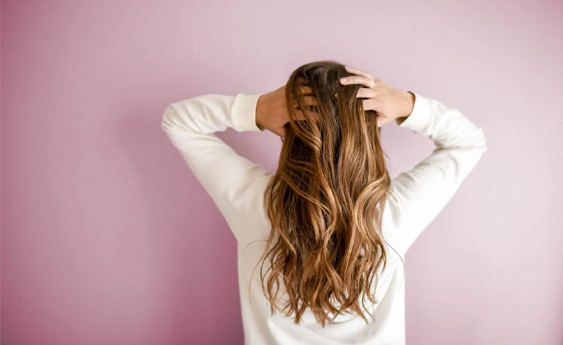TREND NEWS CENTER
Can Prenatal Vitamins Help Prevent Postpartum Hair Loss?
Giving birth is an incredible achievement that requires significant physical and emotional strength. Unfortunately, maternity has its own ups and downs, and postpartum hair loss is something many women can’t escape from.
Also called "postpartum alopecia," this condition is a normal part of the postpartum period and is thought to be caused by hormonal changes in the body, explains the Cleveland Clinic. During pregnancy, you might have noticed a thicker, fuller mane due to higher estrogen levels. However, hormone levels shift after giving birth, and hair may begin to fall out at a higher rate.
While hair loss can cause distress, remember that postpartum hair loss is temporary and typically resolves on its own. However, you may be wondering whether there is anything you can do to help prevent it, like taking prenatal vitamins.
What prenatal vitamins can (and can’t) do for you
According to Penn Medicine Lancaster General Health, prenatal vitamins are specifically formulated for women who are pregnant or trying to conceive. The source says they’re designed to help with fetal development and maternal health during pregnancy and usually contain a blend of vitamins and minerals, including folic acid, iron, calcium, and various B vitamins.
Although intended for a different purpose, prenatal vitamins may help replenish vitamins lost during breastfeeding. According to a 2016 study published in the journal Anales de Pediatría, lactation increases the need for additional nutrients. It’s normally recommended to keep taking prenatal vitamins until after giving birth, says Healthline.
Currently, no studies support prenatal vitamins helping postpartum hair loss. However, many prenatal vitamins also contain biotin, since it’s vital for a healthy pregnancy. Biotin might help keep your hair healthy. Although studies linking biotin with hair growth are limited, one 2016 study published in the International Journal of Trichology found a link between biotin deficiency and alopecia.
What you can do about postpartum hair loss
While postpartum hair loss can be distressing for some women, it’s important to remember that it is a normal part of the postpartum period, says the Cleveland Clinic.
Hair loss can be particularly noticeable in the first three months following childbirth, says Medical News Today. The Cleveland Clinic notes that the condition typically resolves on its own within six months. Perelel adds that the hair loss may even continue for about a year. However, if your hair loss is severe or continues beyond the first year after giving birth, speaking to your doctor to rule out other underlying causes might be best.
In the meantime, avoid harsh hair treatments or hairstyles that can further damage weakened hair. Instead, opt for gentler hair care routines, such as air-drying hair or using low-heat styling tools. Using gentle hair-volumizing shampoos and conditioners that are free of harsh chemicals might help add more fullness and bounce to your hair, says the Cleveland Clinic. The American Academy of Dermatology Association also advises against using products labeled "conditioning shampoos" or "intensive conditioners," since these types of products are heavy and can weigh down finer hair.
Source: Health Digest
